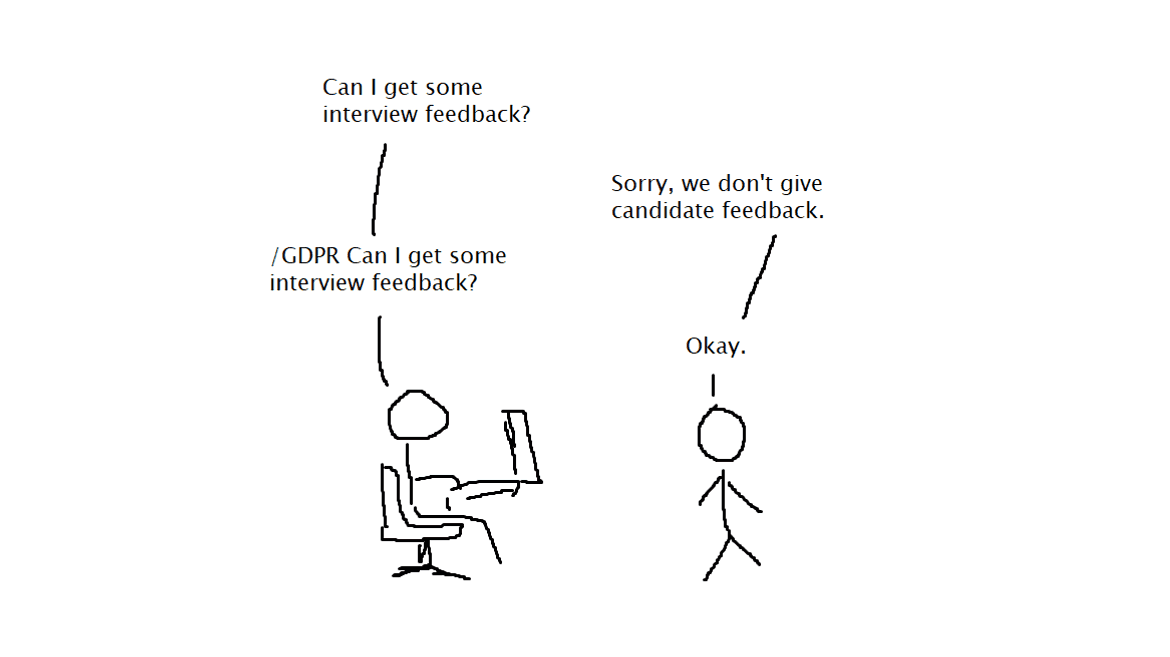How GDPR Can Help You (as an Interview Candidate)

Note: I'm not a lawyer, and your mileage may vary when following steps in this post - but I'm sharing what I found helpful earlier this year
When you have multiple job applications on the go and you're pouring your mental energy into each interview process, it can be disheartening to get the kind of rejection where you aren't quite sure why you didn't make it to the next stage. For folks in the EU or UK, the General Data Protection Regulation (or post-Brexit Data Protection Act 2018) can come to the rescue with more than the familiar cookie banner.
One of the fundamental rights that GDPR confers is the right to access personal data collected about yourself, under Article 15. In other words, as a candidate you have a right to view anything written about yourself by the company you applied to.
For example, let's say you didn't pass a coding interview, and you get generic feedback from the recruiter and a note that "the company doesn't provide detailed feedback" for whatever reason. If you felt strongly that getting more information would help you improve in future interviews, you can make a Subject Access Request for your data from your interview application and process.
There's no standard way to make a SAR, though the Information Commissioner's Office offers some guidance on their website and larger companies will often have a form or email address for this purpose, for example halfway through in Bloomberg's privacy policy notice or at the bottom of Spotify's privacy policy.
The company:
- cannot charge for processing SAR requests in most cases
- must respond within a month
- cannot take longer than three months to complete the request regardless of complexity.
Organisations that mismanage SARs can get in trouble with the relevant data protection officer, so there's strong incentives for companies to comply.
With a SAR, I was personally able to get a graded score and some further notes from a coding interview, which I used to identify additional study areas for subsequent interviews. However, that doesn't mean you should file SARs every chance you get! Keep in mind:
- they can take some time to process. Will you still be interviewing in the next month to three months? If not, it may not be worth your time to submit a SAR.
- larger companies have more resources (and higher expectations) to process SARs. A small 3 person start-up may not be able to provide anything useful in response to a SAR.
- it might not bring up anything new. If you have enough signal from how you did in the interview, it can often be more effective to just move on.
Anyway - sometimes, you don't need to take the first no, and knowing more about GDPR and filing a SAR can help shed some light on your interview performance. Best of luck to those of you out there currently interviewing!